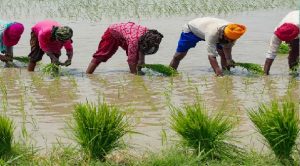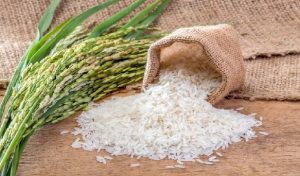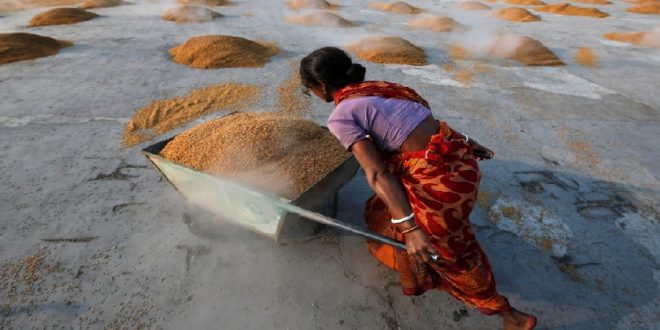17-08-2023
Bureau Report + Agencies
NEW DELHI: Last month, three days after Russia pulled out of the Black Sea grain deal, India imposed a ban on July 20 on the export of non-basmati white rice. The move followed a ban on the export of broken rice, which was announced in September last year and is still in place.
 India’s reasons were domestic rising food prices, high inflation and fear of rice shortage due to El Nino disruptions as the country heads into a festive season and elections but the bans’ impact is now being felt globally, with prices shooting up.
India’s reasons were domestic rising food prices, high inflation and fear of rice shortage due to El Nino disruptions as the country heads into a festive season and elections but the bans’ impact is now being felt globally, with prices shooting up.
“Earlier rice was trading for $550 per metric tonne, now prices are hovering above $650,” Nitin Gupta, senior vice president of Olam Agri India Private Limited, one of India’s biggest rice exporters, told media.
Here’s an explainer on India’s role in the global rice market and how elections, climate change and El Nino are complicating rice prices.
The world’s biggest exporter
India, the world’s biggest rice exporter, accounted for nearly 40 percent of global rice trade in 2022, exporting 22 million tonnes worth $9.66bn to 140 countries. That included 4.5 million tonnes of basmati rice, 8 million tonnes parboiled rice, 6 million tonnes non-basmati white rice, and 3.5 million tonnes broken rice.
India continues to export parboiled and basmati rice, meeting its international commitments halfway, but global rice prices have increased by 15-25 percent since the ban. Worst hit are the poor in countries like Bangladesh and Nepal,  who depend on Indian white rice, and those in African countries like Benin, Senegal, Togo, and Mali, which import broken rice, the cheapest and most filling variety.
who depend on Indian white rice, and those in African countries like Benin, Senegal, Togo, and Mali, which import broken rice, the cheapest and most filling variety.
International prices for grains had already shot up due to Russia’s war on Ukraine. Prices have further rallied since Russia walked out of the Black Sea Grain Initiative, which would have allowed grain from Ukraine to reach world markets and now, in addition to India’s rice ban is the fear that Thailand, Vietnam and Pakistan which together account for 30 percent of global rice sales may do similar copycat bans in case their crops are hurt by El Nino, which has returned for the first time in seven years.
Traders and scientists say a shortage of rice, a staple for more than half of the world’s population, will have a spillover impact on wheat, soya beans, corn and maize, which are used as rice substitutes both for human consumption and in animal feed. This could lead to a domino effect on the demand and prices of not just other food items, but also fuel.
 Pressmediaofindia
Pressmediaofindia




